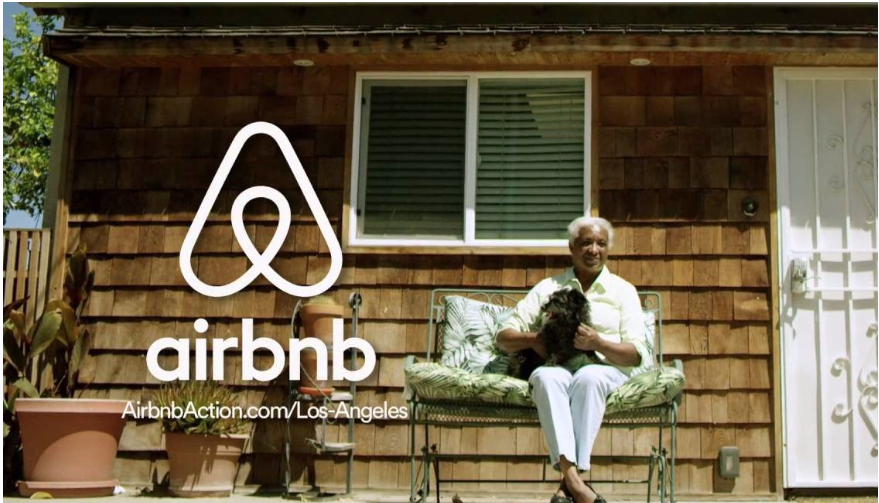CommentsDEEGAN ON LA-How do you make Los Angeles less strange for strangers who are visiting?
Getting “into” a city when you travel can be a welcome reward for travelers who take time to explore the off-the-beaten-track attractions passed on by fellow visitors and travel agents. They also benefit from delving into popular resources like Lonely Planet and Yelp for ideas about what to see and where to go. Knowing a “local” who has insider information can be the best way to learn what’s happening, adding dimension and memories to your vacation.
Concierges at four and five-star hotels serve those needs for the upper crust travelers, but what about the millions of others? There were 48.3 million visitors to Los Angeles in 2017, according to the Los Angeles Tourism & Convention Board, LA’s official tourism marketing organization.
Having fun in the sun is just one of many attractions while on vacation in Southern California. Los Angeles is home to lots of different people from many backgrounds. While White, Black, Hispanic, Latin and Asian are often identified as the major ethnic groups, there are actually 225 languages spoken in LA , reflecting a wide diversity of people...the kinds of people who, if you get to know them, can make an impression and enhance your experience by sharing their culture and showing you their side of life.
The best way to play local is to stay local: find one of the hundreds of Airbnb hosts and let them be your guide. The explosion of the sharing economy, whether it’s dockless electric scooters and bikes, ride hailing (Uber and Lyft), or accommodations (Airbnb), has made traveling much more intimate, allowing visitors to sidestep rental cars and expensive hotels.
A big disconnect in this phenomenon is how the city of Los Angeles deals with hosted stays at Airbnbs. LA does not effectively govern short-term rentals; there are no immediate answers to the years-long city dialogue about how to handle Airbnb, a home sharing program that has many benefits as well as certain distractions. Some of the negatives that must be overcome are how neighborhoods are impacted by what some regard as “neighbors for a night” — the constant in-and-out of strangers.
Most significantly, as a Motion now under consideration by the City Council points out, “in some popular tourist communities such as Venice, speculators have subverted the "sharing economy" business model, converting regular rental housing into short-term rentals, significantly reducing rental stock and contributing to increased rents and decreased affordable housing. In some cases, large numbers of units in the same building, or entire buildings, have been converted to short-term rentals, operated by off-site management companies.”
Another concern is the delicate ecology of rent-controlled housing which may be upset if the City Council allows housing protected by the Rent Stabilization Ordinance (RSO) to qualify for Airbnb usage, as the city struggles with how to regulate home sharing.
The RSO rules generally apply to rental properties built on or before October 1, 1978. Including RSO’s in proposed Airbnb regulations has seesawed in and out of consideration. The City Council has yet to make a final determination on a proposed Short-Term Rentals / Home Sharing Ordinance that was first introduced in a motion by Councilmembers Bonin (CD11) Wesson (CD10) and Koretz (CD5) on January 2, 2015.
Allowing RSO units to qualify for Airbnb could become a man-bites-dog scenario, in which landlords are disadvantaged by being bound to a unit rental that is frozen by law to approximately three percent annual increase, while a tenant can charge market rate and pocket the difference. If the tenant occupies a two-bedroom unit but uses only one for himself, the spare bedroom can become a dedicated Airbnb space for up to 120 days, now the limit used in the proposed ordinance. The landlord clearly gets bitten in this scenario, being denied the extra income from his property.
Legitimate home sharing hosts can use Airbnb to supplement their income which is a very powerful argument for the expansion of this home-sharing model. And, the City gets a 14% transient occupancy tax (aka bed tax or hotel tax) from hosts, who may be able to share space for up to 120 nights per year in the current draft of the motion.
Sooner or later, even though it’s been talked to death for at least three years, the City Council will resolve this and open the door wider, not only to hosts but to visitors who can enjoy a “local” vibe during their stay in Los Angeles and go home with unique memories of what it’s like to “live” in LA, not just be a “visitor.”
(Tim Deegan is a civic activist whose DEEGAN ON LA weekly column about city planning, new urbanism, the environment, and the homeless appear in CityWatch. Tim can be reached at [email protected].) Edited for CityWatch by Linda Abrams.
















